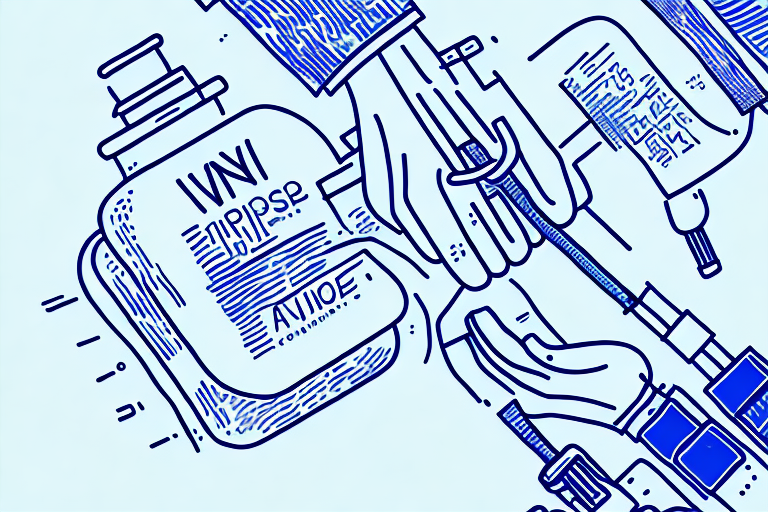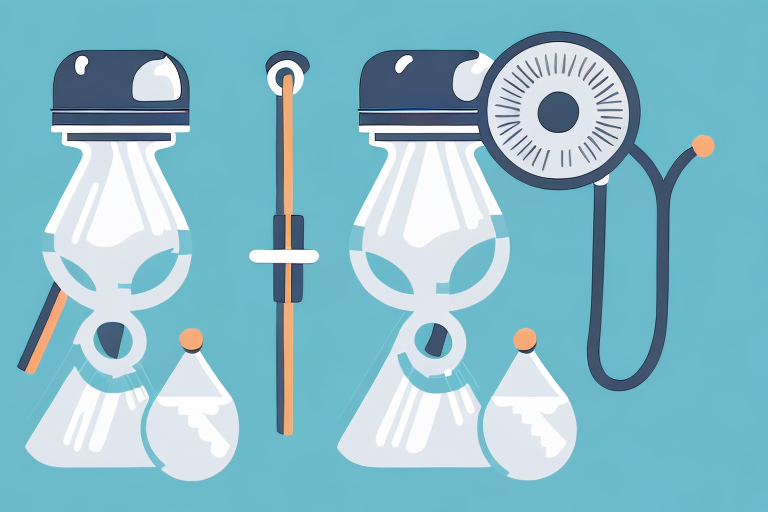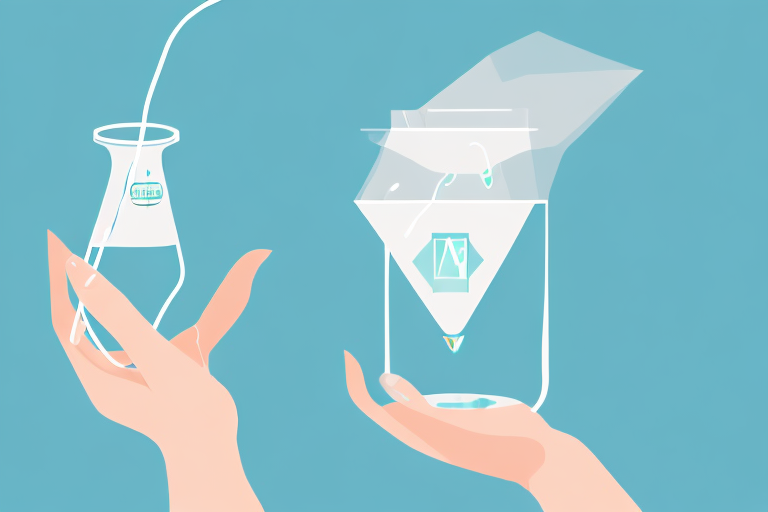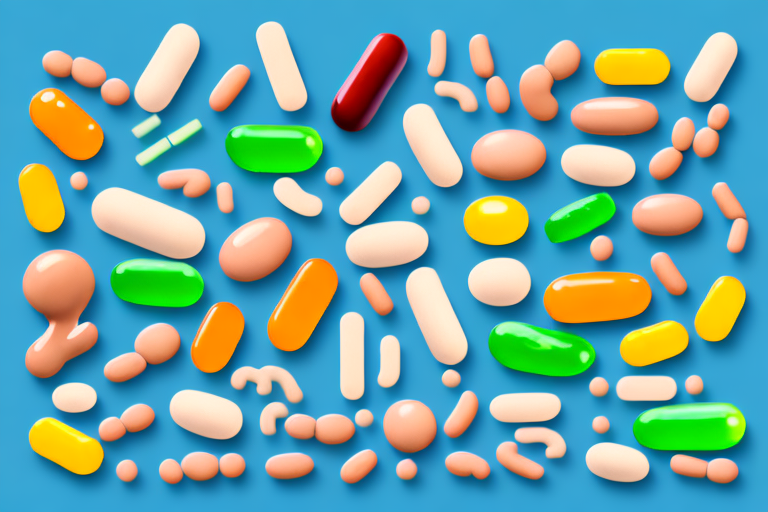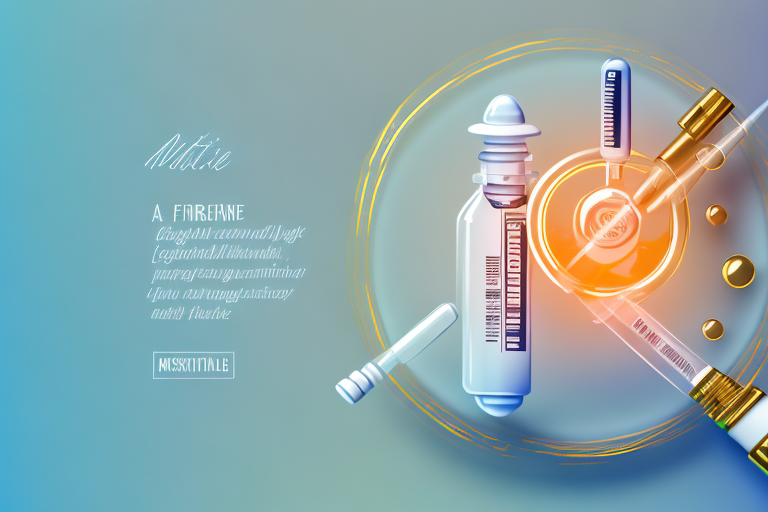Uncovering the Glutathione Benefits for Athletes
As an athlete, you're always striving to enhance your performance and achieve your goals. You probably already know the importance of a well-balanced diet, rigorous training routine, and adequate rest. However, have you ever considered the role that glutathione plays in your overall health and athletic performance?

Understanding Glutathione and Its Role in the Body
Glutathione is an antioxidant that is naturally produced in the body. It is composed of three amino acids - cysteine, glycine, and glutamic acid - and plays a crucial role in protecting cells from oxidative damage.
Glutathione is not only produced in the body but can also be found in some foods such as fruits, vegetables, and meats. However, the body's production of glutathione is much more efficient than the absorption of it from food sources.
What is Glutathione?
Glutathione, often referred to as "the master antioxidant," is a protein that is found in every cell of the human body. Its primary function is to protect cells from oxidative stress and damage caused by free radicals. Free radicals are unstable molecules that can damage DNA, proteins, and other cellular components.
Furthermore, glutathione is involved in several cellular processes, including DNA synthesis and repair, protein synthesis, and enzyme activation. It also helps to detoxify the body by binding to toxins and eliminating them from the body.
How is Glutathione Produced in the Body?
Glutathione is produced in the body through a two-step process. The first step involves the combination of cysteine, glutamic acid, and glycine to create glutathione precursors.
The second step involves the conversion of these precursors into glutathione molecules with the help of enzymes. The enzyme glutathione synthase is responsible for this conversion process. Several factors can affect glutathione production, including diet, stress levels, and exercise.
For instance, consuming foods rich in sulfur-containing amino acids like cysteine can boost glutathione production. Similarly, engaging in regular exercise has been shown to increase glutathione levels in the body.
The Importance of Glutathione for Overall Health
Glutathione plays a vital role in maintaining overall health. It serves as a natural defense against toxins, pollutants, and other harmful substances that we encounter in our daily lives. Additionally, glutathione helps support the immune system, lowers inflammation, and regulates cell growth and division.
Research has also suggested that glutathione may have anti-aging effects. As we age, our bodies produce less glutathione, which can lead to an accumulation of oxidative stress and damage. Therefore, supplementing with glutathione or taking measures to boost its production may help slow down the aging process.
Moreover, glutathione deficiency has been linked to several health conditions, including Alzheimer's disease, Parkinson's disease, and liver disease. Therefore, maintaining adequate levels of glutathione in the body is essential for preventing and managing these conditions.
In conclusion, glutathione is a crucial antioxidant that plays a vital role in maintaining overall health. Its production in the body can be influenced by several factors, including diet, exercise, and stress levels. Therefore, taking measures to boost glutathione levels in the body can have numerous health benefits.
Glutathione's Impact on Athletic Performance
As an athlete, you're likely to experience increased levels of oxidative stress and inflammation due to the demands of intense physical activity. This is where glutathione can play an essential role in your athletic performance.
Glutathione is a powerful antioxidant that is naturally produced in the body. It is made up of three amino acids: cysteine, glycine, and glutamine. Glutathione works by neutralizing harmful free radicals, which are produced during exercise and can cause damage to cells and tissues.
Boosting Energy Levels and Endurance
One of the primary benefits of glutathione for athletes is its ability to improve energy levels and endurance. Glutathione can help reduce muscle fatigue and delay the onset of exhaustion by regulating the production of lactic acid.
Lactic acid is a byproduct of energy production in the muscles. When lactic acid builds up, it can cause muscle fatigue and limit endurance. Glutathione helps regulate the production of lactic acid, allowing the muscles to continue to produce energy without becoming fatigued.
Glutathione also helps improve mitochondrial function, which is essential for energy production in the cells. Mitochondria are the powerhouses of the cells, and they are responsible for producing ATP, the energy currency of the body. By improving mitochondrial function, glutathione can help boost energy levels and endurance.
Reducing Muscle Fatigue and Recovery Time
Glutathione aids in reducing muscle fatigue and promotes faster recovery times. It helps prevent muscle damage caused by free radicals, which can lead to muscle soreness and fatigue.
Free radicals are unstable molecules that can cause damage to cells and tissues. During exercise, the body produces more free radicals than usual, which can lead to oxidative stress and inflammation. Glutathione helps neutralize these free radicals, reducing the damage they can cause to the muscles.
Glutathione also helps promote faster recovery times by reducing inflammation in the muscles. After intense exercise, the muscles can become inflamed, leading to soreness and stiffness. Glutathione helps reduce this inflammation, allowing the muscles to recover more quickly.
Enhancing Oxygen Utilization and Delivery
Glutathione also helps optimize oxygen utilization and delivery, which is crucial for increased endurance and overall performance. It does this by reducing oxidative stress and increasing blood flow to the muscles.
Oxygen is essential for energy production in the cells. During exercise, the body requires more oxygen to produce energy, and the muscles need oxygen to function properly. Glutathione helps improve oxygen utilization by reducing oxidative stress, which can interfere with the body's ability to use oxygen efficiently.
Glutathione also helps increase blood flow to the muscles, which delivers more oxygen and nutrients to the cells. This increased blood flow helps improve endurance and overall performance.
Glutathione's Role in Reducing Oxidative Stress
Oxidative stress is a significant contributing factor to several illnesses and diseases, including cancer, diabetes, and heart disease. It can also impact athletic performance by leading to fatigue and reducing endurance.
It is essential to understand that oxidative stress occurs when there is an imbalance between free radicals and antioxidants in the body. Free radicals are unstable molecules that can damage cells, while antioxidants are molecules that neutralize free radicals.
The Link Between Exercise and Oxidative Stress
During exercise, the body requires more oxygen to produce energy, which can lead to increased oxidative stress. While exercise is an essential component of a healthy lifestyle, too much can lead to an imbalance between free radicals and antioxidants, leading to cellular damage.
It is important to note that athletes who engage in high-intensity exercise are at a higher risk of oxidative stress. This is because the body requires more oxygen to produce energy during intense exercise, leading to an increase in free radicals.
How Glutathione Neutralizes Free Radicals
Glutathione can help neutralize free radicals by donating electrons to unstable molecules, preventing them from damaging cells. Additionally, glutathione can regenerate other antioxidants such as vitamin C and E, which further protect cells from oxidative stress.
Glutathione is a tripeptide consisting of three amino acids: cysteine, glycine, and glutamate. It is found in high concentrations in the liver, where it plays a crucial role in detoxifying harmful substances in the body.
The Long-Term Benefits of Reduced Oxidative Stress for Athletes
Reducing oxidative stress through the use of glutathione can have long-term benefits for athletes. It can help reduce the risk of chronic illnesses, enhance recovery times, and improve overall athletic performance.
Studies have shown that athletes who supplement with glutathione have improved endurance and reduced fatigue. Additionally, glutathione can help reduce muscle damage and inflammation, leading to faster recovery times after exercise.
Furthermore, reducing oxidative stress can help reduce the risk of chronic illnesses such as cancer, diabetes, and heart disease. This is because oxidative stress can damage cells and DNA, leading to mutations and the development of chronic diseases.
In conclusion, glutathione plays a crucial role in reducing oxidative stress and improving overall athletic performance. Athletes who engage in high-intensity exercise can benefit from supplementing with glutathione to reduce the risk of cellular damage and improve recovery times.
Strengthening the Immune System with Glutathion
The immune system plays a crucial role in fighting off illnesses and infections. As an athlete, you rely on your immune system to keep your body healthy and strong. However, several factors can weaken the immune system, including intense physical activity, poor nutrition, and inadequate sleep. These factors can lead to an impaired immune system, which can cause illnesses, fatigue, and reduced athletic performance.
The Connection Between Athletic Performance and Immunity
Athletes are at a higher risk of developing illnesses due to the intense physical activity they engage in. During exercise, the body undergoes stress, which can cause a temporary decrease in immune function. This decrease in immune function can last for several hours after exercise, leaving athletes vulnerable to infections and illnesses.
Additionally, inadequate sleep and poor nutrition can further weaken the immune system, making it difficult for athletes to recover from intense workouts and competitions. This can lead to reduced athletic performance and an increased risk of injuries.
Glutathione's Role in Immune Cell Function
Magnesium is a vital Glutathione is a powerful antioxidant that helps strengthen the immune system by supporting the function of immune cells. It aids in the production of white blood cells, which are responsible for fighting infections and illnesses. Glutathione also helps neutralize free radicals, which can damage cells and weaken the immune system.
Research has shown that glutathione levels can be depleted in athletes due to intense physical activity and poor nutrition. This depletion can lead to an impaired immune system, leaving athletes vulnerable to infections and illnesses. that plays a crucial role in various bodily functions, including nerve and muscle function, blood sugar regulation, and blood pressure management. While magnesium is readily available in many foods, some individuals may have difficulty absorbing it or may have a deficiency that requires supplementation. Intravenous (IV) therapy is a method of delivering magnesium directly into the bloodstream, bypassing the digestive system and allowing for rapid absorption.
How Improved Immunity Benefits Athletes
A strong immune system is critical to maintaining a healthy body and maximizing athletic performance. By strengthening the immune system with glutathione, athletes can reduce the risk of illnesses, enabling them to perform at their best. Glutathione supplementation has been shown to improve immune function in athletes, reducing the incidence of infections and illnesses.
Additionally, a strong immune system can help athletes recover more quickly from intense workouts and competitions. This can lead to improved athletic performance and a reduced risk of injuries.
In conclusion, maintaining a strong immune system is essential for athletes to perform at their best. Glutathione supplementation can help support immune function and reduce the risk of illnesses and injuries. By incorporating glutathione into their training regimen, athletes can maintain a healthy body and achieve their athletic goals.
Natural Ways to Boost Glutathione Levels
While the body naturally produces glutathione, several factors can reduce production levels. Fortunately, there are natural ways to boost glutathione levels. Glutathione is a powerful antioxidant that plays a crucial role in protecting the body from oxidative damage, reducing inflammation, and supporting the immune system. Here are some natural ways to boost glutathione levels:
Foods Rich in Glutathione and Its Precursors
Eating a diet rich in glutathione and its precursors can help increase the body's production of glutathione. Foods such as avocado, spinach, asparagus, and walnuts are all excellent sources of glutathione precursors. Other foods that can help increase glutathione levels include broccoli, garlic, and tomatoes. Consuming a diet rich in fruits and vegetables can also help increase the body's production of glutathione.
It's important to note that cooking can destroy glutathione, so it's best to consume these foods raw or lightly cooked to get the most benefit from their glutathione content.
The Role of Exercise in Glutathione Production
Regular exercise can help boost glutathione levels and reduce the risk of oxidative stress. High-intensity interval training (HIIT) has been shown to be particularly effective in increasing glutathione production.
Exercise helps boost glutathione levels by increasing the production of reactive oxygen species (ROS) in the body. These ROS molecules then stimulate the body's production of glutathione to combat the oxidative stress caused by the exercise. Regular exercise also helps improve insulin sensitivity, which can further boost glutathione production in the body.
Supplements and Other Strategies for Increasing Glutathione Levels
Supplements such as glutathione, N-acetylcysteine (NAC), and alpha-lipoic acid (ALA) are all effective in increasing glutathione levels in the body. Glutathione supplements can be taken orally or administered intravenously. NAC is a precursor to glutathione and can help increase the body's production of glutathione. ALA is a powerful antioxidant that can help boost glutathione levels by recycling other antioxidants in the body.
Additionally, getting adequate rest, managing stress levels, and reducing exposure to environmental toxins can all help boost glutathione production. Chronic stress and exposure to toxins can deplete the body's glutathione levels, so it's important to take steps to reduce these factors in your life.
In conclusion, there are many natural ways to boost glutathione levels in the body. Eating a diet rich in glutathione and its precursors, engaging in regular exercise, and taking supplements such as glutathione, NAC, and ALA can all help increase glutathione levels. Additionally, managing stress levels, getting adequate rest, and reducing exposure to environmental toxins can also help boost glutathione production.
Conclusion: The Power of Glutathione for Athletic Success
Glutathione is a vital component of overall health and athletic performance. Its ability to reduce oxidative stress, strengthen the immune system, and enhance endurance makes it an ideal supplement for athletes looking to maximize their potential.
By incorporating natural ways to boost glutathione production into your training and nutrition regime, you can ensure that your body is operating at its full potential. Whether you're a professional athlete or a weekend warrior, glutathione can help take your performance to the next level.
© 2024 IV Fluids | All Rights Reserved | Powered By OMG Marketing

